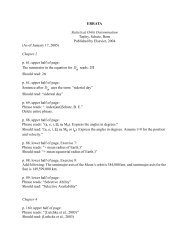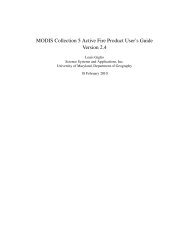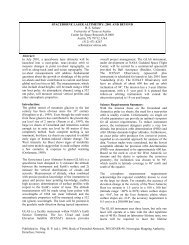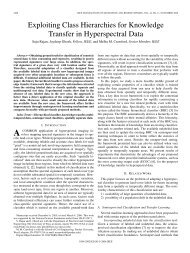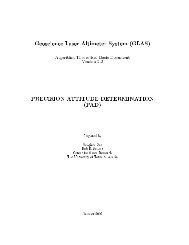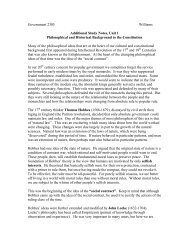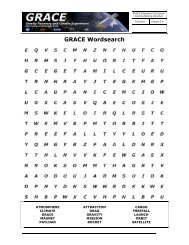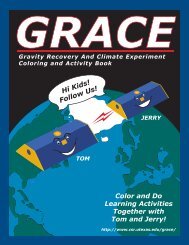Unit 3 Lecture Notes (PDF format)
Unit 3 Lecture Notes (PDF format)
Unit 3 Lecture Notes (PDF format)
- No tags were found...
You also want an ePaper? Increase the reach of your titles
YUMPU automatically turns print PDFs into web optimized ePapers that Google loves.
use the veto but also to recommend proposals to Congress. For all these<br />
reasons, a more activist presidency has evolved during the modern era.<br />
Your textbook discusses reasons why presidential powers have evolved over<br />
time. There are three key theories of presidential power that account for<br />
this, as well as a historical progression of expansion of power at the federal<br />
level:<br />
1) The Whig theory of presidential power holds that the presidency<br />
is a limited or constrained office whose occupant was confined to<br />
the exercise of expressly granted constitutional authority. Most of<br />
the early presidents of this country followed this theory in how<br />
they exercised the power of the presidency.<br />
2) The stewardship theory of presidential power calls for a strong,<br />
assertive presidential role that, in the words of Theodore<br />
Roosevelt, directs the president “to do anything that the needs of<br />
the Nation demanded unless such action was forbidden by the<br />
Constitution or by the laws.” Most presidents since the turn of the<br />
20 th Century have been more of this model than previous<br />
presidents.<br />
3) The prerogative theory of presidential power, which is not<br />
mentioned in the text, carries the role of the president into more<br />
assertive and aggressive areas, often going outside the Constitution<br />
and the nation’s laws. This theory of “paramount necessity” as<br />
defined by Abraham Lincoln and used by Franklin Roosevelt and<br />
Richard Nixon pushes the direction of the presidential exercise of<br />
power into imperial or dictatorial areas, raising legal and ethical<br />
questions regarding its use. Food for thought: Do you consider the<br />
presidency of George W. Bush to be of this type<br />
4) Originally the states were very strong in the new republic and the<br />
<strong>Unit</strong>ed States was not always an international power. Expansion<br />
of the federal government’s policymaking role, the evolution of a<br />
large and active government, and the broader national and<br />
international responsibilities of the <strong>Unit</strong>ed States require strong<br />
leadership from presidents.<br />
5) Because of the president’s constitutional authority as chief<br />
diplomat and military commander plus the special demands of<br />
foreign policy leadership, the president, not Congress, has taken<br />
the lead in addressing the <strong>Unit</strong>ed States’ increased responsibilities<br />
in the world.



